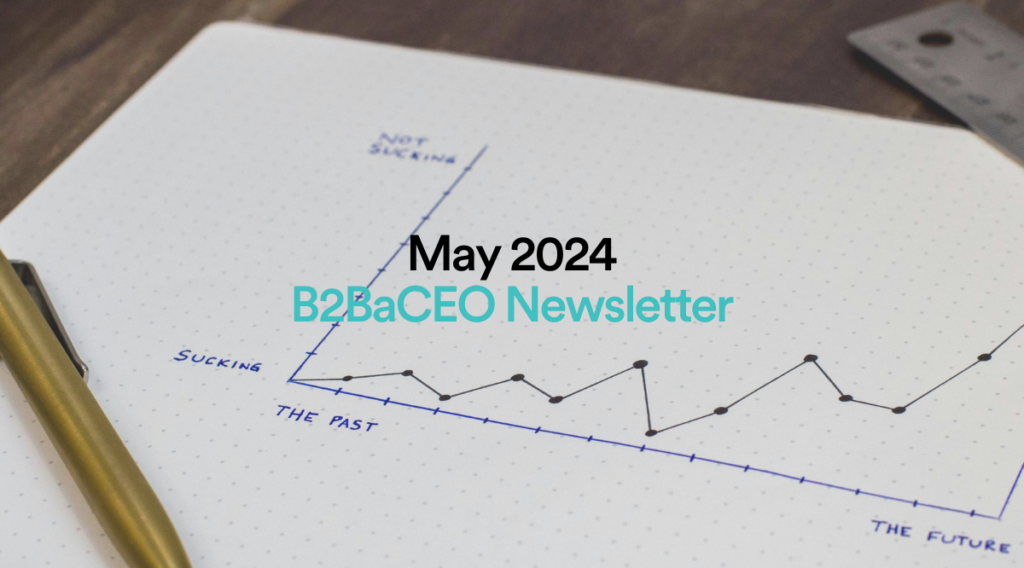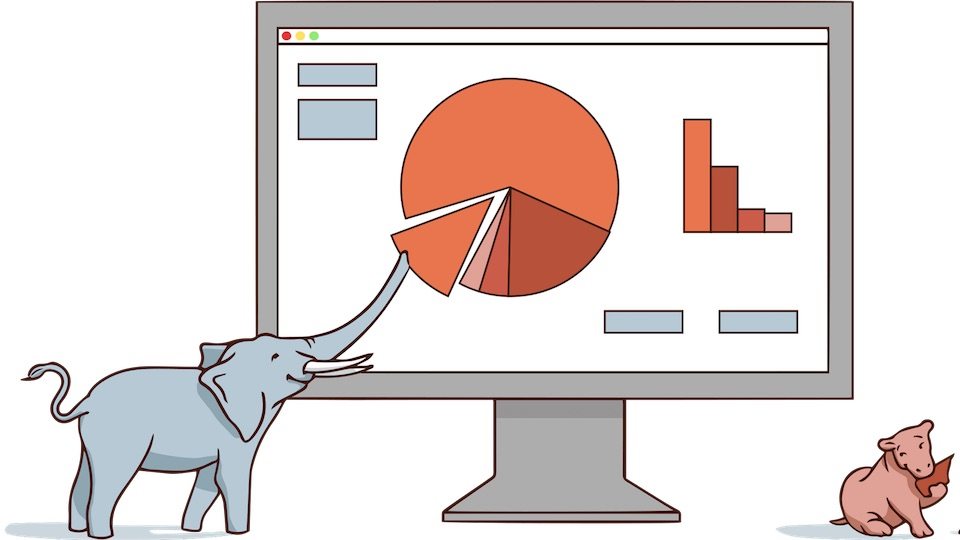Reflections on 16 years in venture capital
07.26.2024 | By: Ashu Garg

This month, I take stock of my time at Foundation and share what I’ve learned about people, potential, and the power of persistence.
Sixteen years ago, I stumbled into the world of venture capital through a chance conversation in a Menlo Park parking lot.
On my way home from a gridlocked drive from San Francisco, I stopped at an office park to take a break. As luck would have it, I happened to park next to Ashmeet, one of the partners at Foundation Capital. We were walking back to our cars at the same time, so I introduced myself. That chance introduction led to a series of conversations, and eventually to a meeting with Bill Elmore, one of Foundation’s founders.
At the time, I was fresh out of the big, corporate environments of McKinsey and Microsoft. I’d tried and failed to launch a local search engine during the dot-com bubble and was thinking about starting another company. There was no official job opening at Foundation. I didn’t even realize I was being interviewed until I got the offer. Ashmeet handed me a sealed envelope with the offer letter on the same day my wife, Pooja, discovered she was expecting our first child.
I entered venture capital with no expectations and little knowledge of the industry. To me, it seemed like just another job—a new set of challenges to tackle with spreadsheets and market analyses. I couldn’t have been more wrong.
What I’ve come to understand is that venture capital isn’t really about money. It’s about possibility—a front-row seat to the future, where you witness ideas transform from napkin scribbles to industry-shaping companies. But the most crucial insight, one that took me years to fully grasp, is that the magic doesn’t reside in financial models or market forecasts. It lives and breathes in founders.
In my early days at Foundation, I relied heavily on credentials and raw intellect. My McKinsey training led me to believe that success hinged on finding the smartest people from the best schools with the most impressive resumes. But time and again, I’ve seen people who are seemingly perfect on paper fall short, while founders with unconventional backgrounds forge ahead through sheer force of will. I’ve found that the true predictors of success are more elemental: grit, determination, and unwavering vision.
The thrill of this job isn’t just in exits or valuations. It’s knowing your belief in a founder helped bring their idea to life. This realization has shaped how I approach my work. Instead of trying to pick winners based on metrics and projections, I focus on building relationships with founders. I’ve learned to ask better questions, to listen more deeply, and to trust my instincts when I sense that unique combination of vision and tenacity that defines extraordinary entrepreneurs.
Of course, this approach comes with its own challenges. It requires a level of emotional investment that can be draining, and the failures—which are inevitable in this business—hit harder when you’ve truly believed in a founder’s dream. But the highs are also higher. There’s no feeling quite like watching a company you backed in its earliest days go on to reshape an industry or demonstrably improve people’s lives.
Looking back, I’m struck by how much the venture landscape has changed. The industry has grown exponentially, with more capital chasing deals than ever before. Technology has dramatically accelerated the pace of innovation. But amid all this change, what makes venture capital special is still the same: the human element.
Building this theme, three lessons that I’ve learned over the past 16 years stand out above all others.
Lesson #1: Grit, resilience, and persistence matter more than credentials
The first is perhaps the most important.
When I invest in a founder, I’m looking for a special mix of smarts and drive: a person with a chip on their shoulder and something to prove. Elite schools and firms like McKinsey excel at sharpening intellect and skills, and these are certainly important. But it’s only in the trenches of building a company that you can truly gauge a person’s grit, resilience, and persistence. These qualities are what separate exceptional founders from merely great ones.
These traits are hard to evaluate on paper, and some people naturally have more of them than others. But over time, you develop an intuition for spotting them.
A story that really drives this lesson home for me is my experience with TubeMogul. It was one of my first investments back in 2010. The company, led by CEO Brett Wilson and his co-founders, John Hughes, Jason Lopatecki, and Adam Rose, was building a self-service platform for buying media online. Their aim was to replace the old-school sales process of three martini lunches with software.
Brett, John, and Jason were incredibly smart, technical guys from Berkeley, but they weren’t deep domain experts in advertising. In hindsight, I’m not sure if I would have funded them based solely on their credentials. What won us over was their team dynamic: their energy, their grit, and how quickly they were executing on an opportunity we believed in.
The journey with TubeMogul was a rollercoaster. They were operating in a tough, competitive market, constantly adapting to changes from giants like YouTube, who kept changing the rules. Many of their initial bets went to zero. But despite these setbacks, they kept growing.
The real test of their resilience came when TubeMogul decided to go public. At first, bankers were floating valuations in the $2-3 billion range. But then the market took a turn, a competitor announced bad earnings, and suddenly, valuation expectations began to drop. I’ll never forget when Brett came back to me and said there might not be an IPO at all—the bankers were saying they couldn’t get the deal done.
But Brett and his co-founders wouldn’t take no for an answer. They were ready to break through a brick wall if that’s what it took. We had such faith in the team that we decided to do something we’d never done before (and haven’t done since): we underwrote the IPO with a $25 million check. It was a small IPO, but it got done, and eventually TubeMogul was successfully acquired by Adobe.
This IPO saga is just one example of the team’s relentless spirit. Earlier in the company’s life, when TubeMogul hit a major engineering bug, Brett booked a hotel near their Berkeley office and declared that the entire team would stay there until they fixed it. No matter what obstacle arose, his attitude was always, “We’re going to get this done.”
Stories like TubeMogul’s have reinforced for me that while intelligence and impressive resumes have their place, it’s tenacity and dogged persistence that truly drive startup success. As investors, our job is not just to identify promising ideas, but to back the founders who have the grit to turn those ideas into reality, no matter what stands in their way.
Lesson #2: A single individual can have enormous impact
Before starting at Foundation, I thought that politics was the best way to have a meaningful impact. After all, politicians can alter the course of history with the stroke of a pen, for better or for worse. This top-down approach to change seemed like the most direct way to make a difference.
Even in my early days as an investor, I still focused on big-picture, macro-level impact. But over time, I’ve come to appreciate the personal journeys of founders and the power of micro-level change. I now find an individual’s potential for impact far more inspiring than sweeping policy shifts.
Our investment in Tubi perfectly illustrates this point. We first funded the company in 2013 when they were trying to build an ad network for video games. It was a small market with limited upside. But in 2014, the founder, Farhad, pivoted to what became Tubi.
At that time, the idea of a venture-backed, ad-supported streaming service seemed ridiculous. The prevailing wisdom was that you needed premium content to succeed in streaming, which meant either creating it yourself or buying it for a small fortune. Hulu, which launched in 2007, had already raised hundreds of millions.
I vividly remember Farhad meeting Reed Hastings, the CEO of Netflix (one of Foundation’s early investments), at one of our events. Reed more or less dismissed the idea, which wasn’t surprising. The consensus was that online TV required a subscription model to work.
But Farhad and his team figured out a way to push forward on a shoestring budget. They found creative ways to acquire content and build an audience. There were multiple times when Tubi was a week away from running out of cash and missing payroll. But Farhad’s persistence and ingenuity always found a way forward.
Today, Tubi is the fourth-largest streaming service in the U.S., accounting for 1.7% of all television viewing time. It’s become the largest ad-supported video-on-demand service in the country, essentially creating a category that many thought couldn’t exist.
What’s particularly striking about Tubi’s story is that it’s a classic underdog tale. Tubi wasn’t backed by a major media conglomerate or propelled by hundreds of millions in venture capital. It succeeded through the determination and smart strategy of a small team led by a determined founder.
This experience, and others like it, have fundamentally altered my view on how change happens in the world. While macro-level policy shifts can certainly have wide-reaching effects, I’ve repeatedly seen how individuals working at the micro level can drive bottom-up change that’s more lasting and impactful than any top-down decree.
Lesson #3: Venture is a business of contradictions
The third lesson is perhaps the most humbling. Venture capital is far more challenging and unpredictable than it may appear from the outside. A founder’s success often requires a perfect alignment of numerous, unrelated factors. Timing, that most elusive of factors, can make or break even the most promising startups.
Being an investor means managing contradictions. We look for founders who are persistent but not stubborn, who refuse to take no for an answer but still listen to feedback. It’s hard to know where healthy resolve ends and harmful obstinacy begins. We seek brilliant technologists who can also become compelling people leaders and effective CEOs. We want innovators who can create a “reality distortion field” and inspire others with their vision of the future, without crossing into dishonesty, delusion, or outright lies.
Even when it comes to markets, we’re constantly trying to thread a needle. We search for niches that a startup can dominate, but that also have the potential to grow into massive markets.
When I started, I naively thought I’d master venture capital within a year. Sixteen years later, I’m still learning. It’s a small, opaque industry with long time horizons, sparse (and noisy) data, and little immediate feedback. The experience is profoundly humbling.
Our investment in Opas.ai underscores these dynamics. We funded this company back in 2017. Its focus was on applying AI to observability and root-cause analysis in complex software systems. Today, this category is red hot, with seemingly every fund in Silicon Valley competing to back an AI observability company. In our recent developer showcase with Turing, two of the three finalists fell in this category.
When we invested, the idea made perfect sense. All the things people talk about with generative AI today, we were discussing then. The founders were highly technical, had lived the problem they were trying to solve, and had great founder-market fit.
During due diligence, every company we spoke to said yes, this was absolutely a problem they needed solved. It seemed like we had found a winner. But despite the team’s best efforts, they couldn’t get it to work. They zigged, they zagged, but ultimately, they were too early.
I became so invested in helping Opas.ai succeed that I essentially became a SDR for the company, making hundreds of calls to try to get people to try out the product. But no matter how hard we pushed, we couldn’t get it to work well enough for real-world use.
Now, years later, this idea has come full circle. The market is ready, the technology has caught up, and suddenly everyone wants what we were trying to build back in 2017. It’s a stark reminder that in venture capital, timing matters enormously. You can have the right idea, the right team, even the right market signals, but if you’re too early, it can be just as damaging as being too late.
Closing thoughts
Venture capital isn’t something you can master and then coast on your expertise. It demands constant learning and a willingness to challenge your assumptions. In that spirit, three books have been particularly influential for me.
The first is Neal Stephenson’s Seveneves, a science fiction epic that, on the surface, seems very far removed from the world of venture capital. The novel imagines a future where humanity must rapidly innovate to survive an impending apocalypse. Faced with extinction, the book’s characters reimagine society from the ground up. Their story illustrates how extreme pressure can birth creativity, and how the impossible becomes possible when failure is not an option.
The second is Paulo Coelho’s The Alchemist. On its surface, it’s a simple fable about a young shepherd’s search for his “Personal Legend.” What makes it relevant to venture capital is its emphasis on the journey rather than the destination. The protagonist, Santiago, encounters numerous setbacks and diversions on his quest. His story echoes the non-linear paths of many successful startups. It underlines the importance of staying open to the unexpected, trusting in the process, and recognizing that sometimes the most valuable discoveries come from apparent failures and detours.
The last is Shoe Dog, the memoir of Nike’s co-founder, Phil Knight. Knight’s account of Nike’s early days —the constant financial struggles, the challenges of scaling, the moments of intense doubt—provides a raw look at entrepreneurship that every investor should read. What I find most refreshing is Knight’s honesty about the messiness of building and growing a startup. It’s a powerful reminder of the resolve we look for in founders, and the long-term vision required to build truly transformative companies.
Ultimately, venture capital isn’t just about writing checks: it’s about believing in people and the potential of human creativity and determination. If my story imparts any wisdom, it’s that the next critical moment in your career or industry-changing idea could come from anyone, anywhere—even a stranger in a parking lot.
As investors at the earliest stage, we at Foundation have the privilege to play a small part in turning those ideas into reality.
Published on July 26, 2024
Written by Ashu Garg

